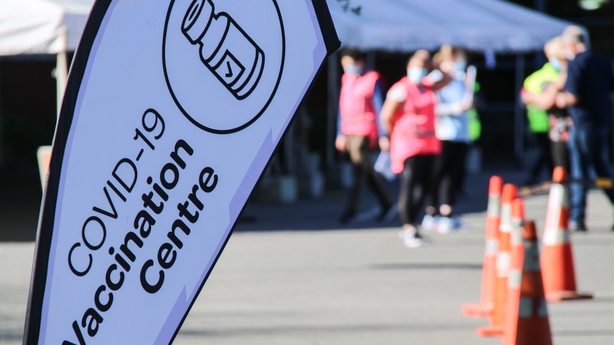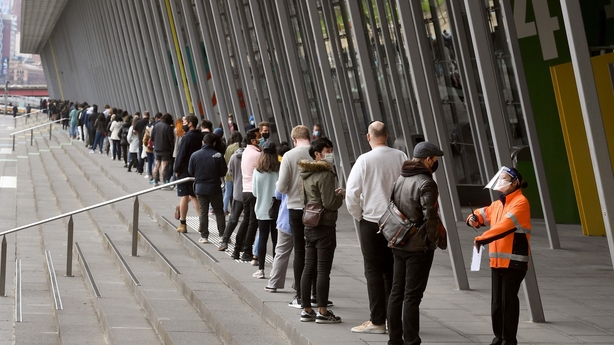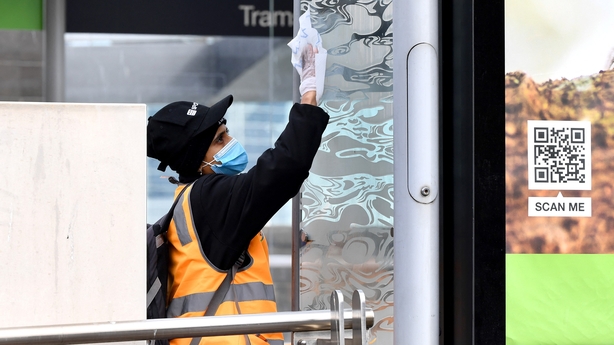New Zealand has extended a national lockdown sparked by a Delta virus outbreak into next week but warned restrictions would last longer in the infection epicentre of Auckland.
The Delta cluster emerged in Auckland last week, ending a six-month run without local transmission that had made New Zealand one of the world's last Covid-free zones.
While there were 70 new cases reported today, taking the total to 347, Prime Minister Jacinda Ardern said there were signs the outbreak would soon peak if stay-at-home orders remained in place.
"We may be seeing the beginning of a plateau in cases," she said.
"Our job is to keep up the hard work in order to bend, and then flatten, the (infection) curve."
Ms Ardern said a nationwide lockdown imposed on 17 August would now continue until 31 August.
She said Auckland, where all but 14 cases have been found, and the neighbouring region of Northland, were set to face at least an extra two weeks of hard lockdown.
New Zealand is pursuing a "Covid zero" elimination strategy - which has resulted in just 26 deaths in a population of five million - using strict border controls backed by hard lockdowns when any cases do slip through.

Ms Ardern said that from Wednesday areas outside Auckland and Northland would move down a notch to level three on New Zealand's four-tier virus alert system.
Most residents must still remain at home during level three but some businesses such as restaurants and retail outlets can reopen using contactless collection methods.
Ms Ardern said police checkpoints would be set up to ensure there was no travel between Auckland, Northland and the rest of the country.
Sydney cases dip as Australia debates reopening plans
Sydney's Covid-19 cases slightly eased today but still hovered near record levels as the Australian federal government looks to press states to stick to a national reopening plan once the country reaches a 70%-80% vaccination rate.
The national cabinet, a group of federal and state leaders, will meet later in the day against a backdrop of concerns by some states given the persistently high daily infections in Sydney even after two months under lockdown.
New South Wales recorded 882 new cases, most of them in state capital Sydney, down from the record 1,029 yesterday as officials struggle to quell the Delta outbreak.
Two new deaths were reported, while 117 people are in intensive care, 103 of them unvaccinated.
Even as infections surge, state authorities revealed a staggered back-to-school plan from late October, when they expect its vaccination rate to hit 70% from 32% now.

New South Wales Premier Gladys Berejiklian said she would be focusing more on vaccination rates and the number of hospitalisations rather than daily case numbers as the rollout picks up speed.
"They are the two things that will matter even when we start to live life more freely at 70% and then obviously at 80% ... we are starting to make that mind change in New South Wales," Ms Berejiklian said during a televised media conference.
A national reopening plan was agreed between leaders of Australia's eight states and territories and the federal government last month, when Sydney cases were much lower, but virus-free Queensland and Western Australia have hinted they may not follow it.
More than half of all Australians are under strict stay-at-home orders as Sydney and Melbourne, its largest cities, and capital Canberra, battle outbreaks of the Delta variant.
In Victoria state, officials detected 79 new local cases, down from 80 cases yesterday. Of the new cases, 26 are mystery cases - those whose source is unknown - raising prospects of an extension to the lockdown beyond 2 September.

With some 48,600 cases and 991 deaths, Australia has kept its coronavirus numbers relatively low. Officials expect fewer deaths from the latest flare-up versus last year as vaccination rates rise.
So far, 32% of people above 16 have been fully vaccinated and based on current rates, Australia should hit 80% by mid-November. Australia's expert vaccination panel today approved the use of vaccines for children aged 12-15.

